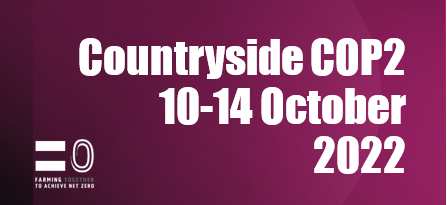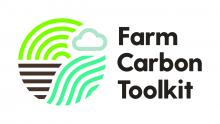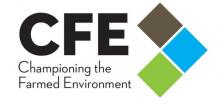Now in its second year, Countryside COP provides a platform for anyone interested in the countryside to hear how the UK’s rural economy and agriculture can help tackle climate change and improve sustainability. Spokespeople from farming, local authority, education, research leaders and more will set out the challenges and vision for farming and the countryside.
The week was organised by the Agriculture and Land Use Alliance. See what events were hosted below.
The objective of each event/workshop was to establish next steps and recommendations on encouraging climate progress in the agricultural community and industry. Recommendations from the Countryside COP2 events have now been published on the CFE website at https://www.cfeonline.org.uk/our-work/countryside-cop2-recommendations/
The common themes amongst the recommendations were:
- There is a need to support those in the industry trying to improve their sustainability, whether that be for cost/investments, training and/or research.
- There is a need to establish detailed but flexible policy frameworks which focus on modern sustainability measures across sectors.
- In relation to the second theme, there was a common call for a platform for productive discussions and recognition of effective but also sustainable land usage.
Day 1: Monday 10th October
- Soil Health and Water Security
- This event is for farmers to share the results from the Farm Carbon Toolkit’s work with Yeo Valley on building soil carbon as part of a transition to regenerative farming. It is organised by Farm Carbon Toolkit (FCT) in association with Yeo Valley.
- with Becky Wilson & Liz Bowles
- A recording is not available for this event as it was in-person.
- Challenges for farming on lowland peat
- Cropping systems on lowland peat soils are high productive but have extremely high CO2 emissions. Join us to discuss what options are available to tackle these issues across lowland peat landscapes.
- Organised by FenlandSOIL, UKCEH, NIAB, WWF
- Awaiting 'Watch Again' link.
Day 2: Tuesday 11th October
- Hitting Biodiversity and Carbon Objectives: Two Norfolk Case Studies
- Jake Fiennes, from the Holkham Estate, and Glenn Anderson, from Wendling Beck, hosted a wider discussion on the practicalities of the projects and their current and expected impacts on wildlife, wider biodiversity, and climate change.
- Organised by NFU East Anglia Environment Forum.
- Watch again here.
- YEN Zero Discussion Workshop: The role of crop productivity in reaching agriculture net-zero
- This workshop will provide an introduction to the YEN Zero network and discussion around the importance of maintaining crop productivity when striving to reach net zero, due to the benefits to indirect land use change and freeing up land for biodiversity and carbon capture purposes. This event will include an audience participatory discussion around how we can reward growers for sustainable productivity.
- Christina Baxter, Toby Townsend & Daniel Kindred from ADAS, plus others
- Watch again here.
- Agroforestry and Biodiversity
- Listen in to discuss how agroforestry can support biodiversity, pollination services and crop yields. Hear the latest research and discuss the options that are available to you on your farm.
- Hosted by Trinity Global Farm Pioneers.
- Watch again here.
- Dairy Roadmap Stakeholders Forum
- Find out more about the UK Dairy Roadmap, hear about our current and future work, and have your say on priority areas, industry concerns, and barriers to sustainability.
- Hosted by Dairy UK.
- This was a closed event.
Day 3: Wednesday 12th October
- Net Zero from Productive Grasslands
- UK grasslands supply the majority of feed to ruminant livestock. This workshop explores grassland forage options that can reduce emissions and maintain productivity. It will present new plant technologies to improve the efficiency of plant to animal protein conversion and explore ways of reducing methane from ruminants
- Paul Billings and David Lloyd from Germinal, Jon Moorby & Christina Marley from Aberystwyth University.
- Awaiting 'Watch Again' link.
- How to Install Renewable Energy Projects on your Farm
- Hear from specialists from NFU Energy, NFU EnZero, and Hafod Renewable Energy who will provide guidance on implementing small-scale renewable energy projects on farm, the pitfalls to avoid, and also introduce leading installers.
- Hosted by NFU Energy.
- Watch again here.
- 'Beyond the Farm Gate' Virtual Farm Tour
- Virtual farm tour featuring recently elected president John McLenaghan, UFU members will get a tour of his farm located close to Garvagh. The farm business showcases the very best of farming innovation with a wind turbine and AD plant amongst other projects to benefit the environment.
- Hosted by the Ulster Farmers' Union.
- This was a closed event.
Day 4: Thursday 13th October
- Sustainable Soil Solutions
- Good soil health is central to all farming systems: lowland, upland, arable to permanent pastures, and everything in between. As well as delivering for food security, healthy soils contribute to sequestration and storage of carbon, biodiversity, resilience to climate change and water management.
- Hosted by NFU North East.
- A recording is not available for this event as it was in-person.
- Life Cycle Analysis for the Food and Agricultural Sector
- The session provided insight into the practical benefits of Life Cycle Analysis and why it is so important as part of a sustainable food and farming system. Key topics included: methodology of Life Cycle Assessment, goal and scope definition, carbon footprint calculators, and impact assessment. The session also gave practical, relatable examples and explored 'why' and 'who' could benefit from LCA.
- Hosted by the School of Sustainable Food and Farming.
- Awaiting 'Watch Again' link.
- How Can Science and Services Help Global Food Supply?
- This webinar considered the impacts of climate change on the food system and how weather and climate science can support food system resilience, underlining the importance of both mitigation and adaption.
- Hosted by the Met Office.
- Watch again here.
Day 5: Friday 14th October
- From Ideas to Implementation: The Role of Young Farmers in Addressing the Climate Crisis
- Young farmers across the globe are taking action to reduce GHG emissions on farm and increase the resilience to the impacts already being experienced. Watch this panel discussion to hear from young farmers across the globe.
- Hosted by NFU, NFYFC, and Youngo.
- Awaiting 'Watch Again' link.
Associated Countryside COP events:
- Land Manager Collaboration for Environmental Delivery
- Join this free one-hour CLA webinar to discover the different ways land managers can work together to engage with environmental markets. You will hear about the range of formal collaboration agreements to consider, and how to know what works best for you.
- Hosted by CLA.
- Awaiting 'Watch Again' link.











